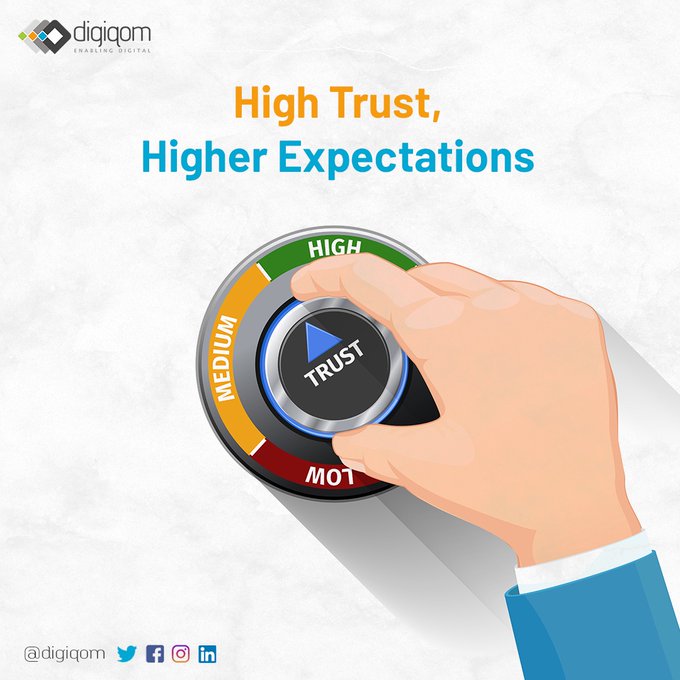Chief executive officers need to step up, as 91% of India expects them to speak up about job automation (read loss), pandemic impact, societal issues, and local community issues. Not just that, 73% polled in the same study expect CEOs to hold themselves accountable to the public and not just to the board of directors or stockholders. Not to mention, CEOs should take the lead on change rather than waiting for government to impose change on them (76%), and a whopping 83% expect CEOs to step in when the government does not fix societal problems.
If these don’t surprise, the EDELMAN TRUST BAROMETER 2021 shows more dimensions of the ‘global infodemic’, with a declared information bankruptcy where people increasingly don’t know where to turn for information they can trust , with the COVID-19 pandemic, racial tensions, political instability, and other issues contributing to the erosion of trust in institutions on a global level. The online survey conducted among 33,000 respondents in 28 global markets, (including India with 200 members of the ‘informed public’ and 1,150 mass population), throws up some startling but not unexpected findings. Conducted between October 19 and November 18, 2020, the study is divided into ‘mass population’, representing 83% of the total, and ‘informed public’, which represents the remaining 17% whose members meet 4 criteria; aged 25-64, university-educated, in the top 25% of household income per age group, and reporting significant engagement with political and economic news.
Expectedly, public trust in societal institutions saw the highest decline in China, while on the other hand, Australians showed higher trust in their institutions. As per the report, China lost 10 points on the trust index as compared to last year, while Australia gained 12 points to score 59 points on the index. China lost its top spot to India and now India, with a score of 86 emerges at the top for informed public, and with 77 points at the top for the general population.
Trust inequalities between informed public & mass population showed up everywhere, and in India, pulled down its top slot in the informed public to third slot in mass population. In as many as 20 countries, informed public completely trust their institutions whereas in mass population, people from mere 8 countries were ready to entrust their faith in institutions. Overall, a trust gap of 16 points emerged between both. The report gave India trust index of 77 points which defines the trust index as average percent trust in NGOs, Business, Government, and media. Trust in Information sources such as search engine, traditional media, social media, owned media declined. Trust percentage of spokespeople under scrutiny such as academic expert, person like yourself, government official, CEO decreased where journalist increased as compared to last year. In India, ‘My Employer’ achieved a trust score of 89%, significantly higher than business in general on 82%. Essentials such as healthcare and consumer packaged food gets a trust boost.
PANDEMIC DEEPENS INEQUITIES AROUND THE WORLD
78% of Indians polled agreed that the pandemic most affected those with less education, less money and fewer resources, the global average was 62% in the 27 other countries polled, possibly hinting at the higher awareness of inequities in India than Japan (52%) and US (58%). Indians as a people are more fearful and concerned about job loss as compared to cyber security, climate change and contracting COVID 19, in that order. Those with the option to choose are split on whether to keep working from home or return to the workplace, with 68% continuing to favor WFH. Of those, 76% cite the risk of contracting COVID-19 as the reason (smaller proportions cited increased productivity or enhanced work-life balance). India remains ‘vaccine positive’ as a country where 62% are willing to vaccinate (31% within 6 months to 1 year and 33% as soon as possible).
Indians displayed an increased urgency to address ‘Foundational Problems’ such as improving healthcare system, education systems, addressing climate change, addressing poverty etc., and business gains more trust by being involved in such Fundamental issues. People expect CEOs to publicly speak out about one or more of these societal challenges. On the other hand, 81% consumer and 80% employees believe they can force corporations to change and 73% are willing to voice their opinions and protest. Employees expect more communications about their safety, upskilling, and diversity.
Media, on the other hand, get called out in India, with 73% polled suggesting journalists and reporters are purposely trying to mislead people by saying things they know are false or gross exaggerations. 50% agree that the media is not doing well at being objective and nonpartisan, while 75% believe news organizations are more concerned with supporting an ideology or political position than with informing the public.
PANDEMIC NECESSITATES NEW INFORMATION DYNAMICS
While ‘declaring information bankruptcy’, the study concludes on the following:
1. Public focus has shifted back to foundational problems.
2. Business is expected to drive societal change, fill in gaps of other institutions, and help communities more proactively.
3. Honest communications by businesses help employees better navigate the impact of the pandemic and build their trust as they return to work.
.4. Institutions & spokespersons face intense scrutiny to provide truthful, unbiased and reliable information.
Given the accelerated unfolding of events in 2021, where trust in public institutions seem to be under unprecedented pressure globally, and an unfolding second wave of COVID19 in India, one wonders what findings the next year’s trust barometer will throw up.
